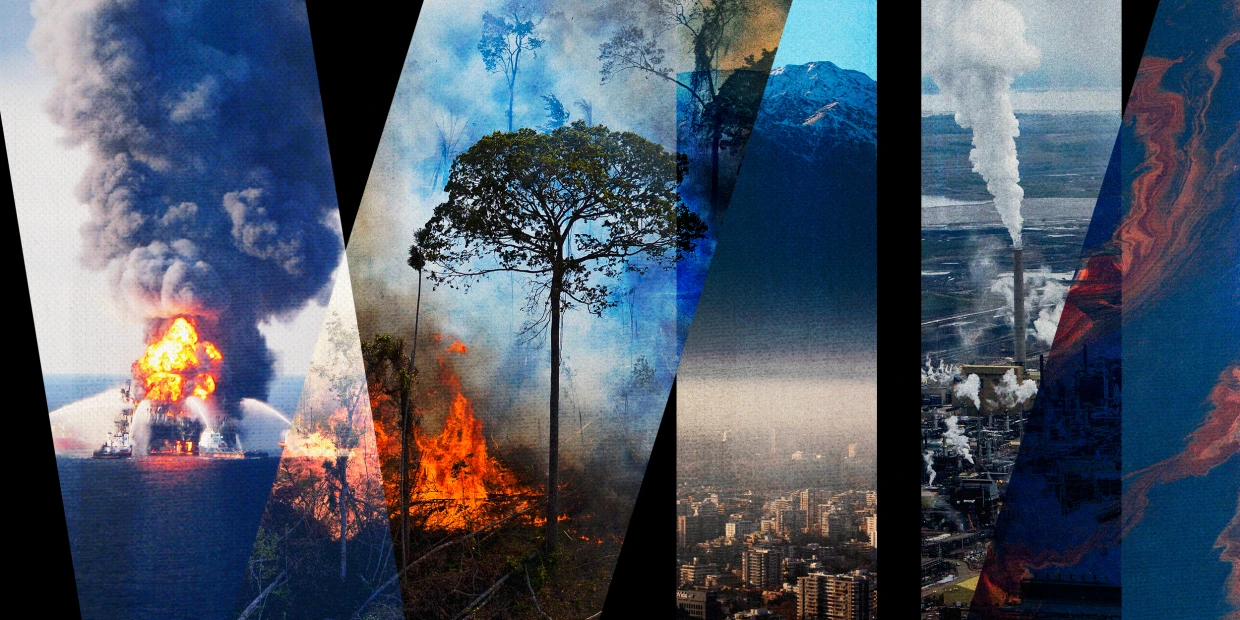IELTS Essay: Environmental Damage
Vocabulary
What do the words in bold below mean? Make some notes on paper to aid memory and then check below.
Environmental damage has become a pressing issue in numerous countries worldwide. The main causes of this problem relate to human expansion and industry and must therefore be tackled by relevant authorities and corporations.
The factors contributing to environmental damage stem from human activity. Firstly, industrial activities and the burning of fossil fuels release harmful emissions, such as carbon dioxide, into the atmosphere, leading to climate change. For instance, the excessive use of coal and oil in power generation contributes significantly to rising temperatures and poor air quality. Secondly, deforestation, driven by logging and agricultural expansion, destroys crucial ecosystems and disrupts the delicate balance of the planet. The loss of forests not only reduces carbon absorption but also leads to soil erosion and the endangerment and potential extinction of numerous plant and animal species.
To address the problem of environmental damage requires a multifaceted approach from governing bodies. Governments should prioritize the implementation of stringent environmental regulations and promote sustainable practices across industries. For example, imposing strict emission standards on factories and incentivizing the use of renewable energy sources can significantly reduce air pollution and combat climate change. Relatedly, funding sustainable land management practices, such as reforestation and afforestation programs, can help restore vital ecosystems and preserve biodiversity. Governments can apply these solutions together with companies that are heavily involved in environmental degradation.
Environmental damage poses a significant threat to the planet, but large organizations must work collectively to mitigate this issue. Implementing sustainable practices, enforcing environmental regulations, and encouraging corporate involvement are key steps toward preserving our environment for future generations.

